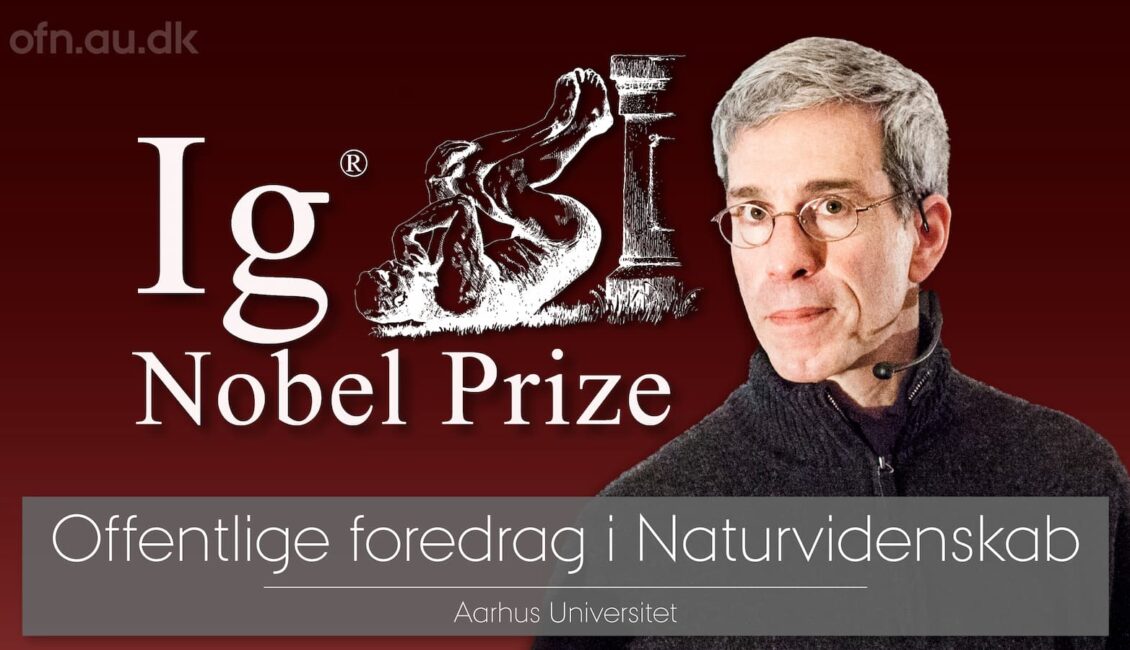
Du skal booke en gratis billet for at deltage!
NB. Dette livestreamede foredrag er en særlig genre, en cocktail af videnskab og humor: oplev fire forelæsere med afsæt i den skøre pris ‘Ig Nobel Prize’ som er kendt under sloganet ‘first laugh, then think’. Du vil først høre prisens stifter, Marc Abrahams, fortælle om prisen og derefter vil tre af prisvinderne præsentere den forskning de fik prisen for. Det er svært i ord at beskrive Ig Nobel Prize – tag chancen og oplev det. (Foredraget foregår på engelsk).
Meet some of the researchers who have received the alternative Nobel Prize – the Ig Nobel Prize.
It is hard to describe the Ig Nobel Prize and the lectures of the price winners in particular – you need to experience it.
The award ceremony takes place every year in a blaze of publicity at a great gala ceremony at Harvard University, USA, and is orchestrated by the founder of the prize, Marc Abrahams.
The Ig Nobel Prize highlights ten research results of the year that are exceptionally creative, unlikely and bizarre, though still serious. To put it in another way: The prize is awarded to “peculiar research” that initially makes us laugh and afterwards gives us food for thought.
The prize covers a wide range of sciences, yet with the main emphasis on natural science, medicine, and social science. In general, the prizes are given to respected and serious research that has been published in peer-reviewed scientific journals.
The evening begins with a short lecture from the founder, Marc Abrahams, who will talk about the prize, the ceremony at Harvard University and some of the recent prize winners and their research “which neither can or should be repeated”. Later on, three Ig Nobel Prize winners will explain and perhaps demonstrate their prize-winning achievements:
- Mariska Kret and Eliska Prochazkova, Leiden University, the Netherlands – for seeking and finding evidence that when new romantic partners meet for the first time, and feel attracted to each other, their heart rates synchronize.
- The research won The Ig Nobel Applied Cardiology Prize in 2022.
- Jonathan Williams, Dr. and professor at Max Planck Institute for Chemistry in Mainz, Germany – for chemically analyzing the air inside movie theaters, to test whether the odors produced by an audience reliably indicate the levels of violence, sex, antisocial behavior, drug use, and bad language in the movie the audience is watching.
- The research won The Ig Nobel Chemistry Prize in 2021.
- Susanne Schötz, ass. professor at Lund University, Sweden – for analyzing variations in purring, chirping, chattering, trilling, tweedling, murmuring, meowing, moaning, squeaking, hissing, yowling, howling, growling, and other modes of cat–human communication.
- The research won The Ig Nobel Biology Prize in 2021.
Warning: The lectures are not suitable for the humourless 🙂



